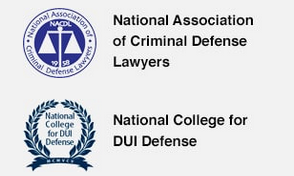Plea Bargaining in Misdemeanor Cases
Criminal Defense Lawyer Serving Phoenix Area Residents
One of the most common resolutions in a felony or misdemeanor criminal case is a plea bargain or deferred prosecution. Plea bargains are considered more efficient than going to trial. Going to trial is time-consuming and expensive. It is important to obtain knowledgeable legal counsel rather than try to arrange a plea bargain yourself. Plea bargaining in misdemeanor cases may result in reduced or dismissed charges, or a more lenient sentence. James Novak is a skillful Phoenix criminal defense attorney who puts his prior experience as a prosecutor to work for his accused clients.
What is a Plea Bargain?
Criminal trials are unpredictable, and both sides may have reasons to want to compromise rather than go to trial. The vast majority of convictions are the result of negotiated pleas; most cases do not go to trial. Plea bargains are agreements between a criminal defendant and prosecutor. A defendant may agree with the prosecutor to plead nolo contendere (no contest) or guilty in exchange for certain concessions. When nolo contendere is the plea, the defendant is saying he will not contest the charges. It is not an admission of guilt. A guilty plea is an admission of guilt, and it can be used against you in a civil case. Both of these types of pleas lead to criminal convictions. Your conviction will appear on your criminal record, whether you pled guilty or no contest. There are certain circumstances, however, in which you might be able to get your record sealed.
Plea Bargaining in Misdemeanor Cases
Concessions in a plea bargain could include an outright dismissal of one or more charges, reduction of a charge to a lesser charge, or a recommendation to the judge for a lighter sentence. For example, where there are three misdemeanor charges being brought, the prosecutor might agree to dismiss two of them in exchange for a no contest plea to the third.
For another example, prosecutors might agree to reduce a charge to a less serious charge in exchange for a plea. This is less likely where the initial charge is a misdemeanor charge, but there are three different classes or levels of misdemeanors. The most serious type of misdemeanor is a class 1 misdemeanor, which can be punished with a maximum of 3 months of jail time, 3 years of probation or 5 years of probation for DUI offenses, and $2500 in fines. For example, you might be charged with a class 1 misdemeanor if you were caught drunk driving or assaulting someone. Class 2 misdemeanors are the next most serious, and they may be punished with up to 4 months in jail, 2 years of probation, and a $750 fine. Criminal trespassing and reckless driving may be charged as class 2 misdemeanors. Class 3 misdemeanors are the least serious, and they may be punished with up to 30 days in jail, 1 year of probation, and a $500 fine. Criminal speeding and criminal trespass in the third degree may be charged as Class 3 misdemeanors.
A prosecutor may agree, for example, to charge assault as a class 3 misdemeanor if it was originally going to be charged as a class 2 misdemeanor if a defendant agrees to plead no contest or guilty.
Does the Prosecutor Have to Bargain With Me?
Prosecutors are encouraged to pursue plea bargains and offer diversion programs as appropriate. These methods of resolution reduce the burden on the court’s docket and preserve resources. In a deferred sentencing discussion, you are talking about whether you’ll join a program that results in diversion prior to a guilty plea or trial. In contrast to a plea bargain, if you complete a deferred sentencing program, your charges will be dismissed completely. However, as a defendant, it’s important to be aware that statements made for purposes of deferred sentencing can later be used against you. A skilled criminal defense lawyer can help you navigate this process.
Requirements
Plea bargains are not always the best solution. If there is a strong chance that the prosecution can’t establish the elements of your charges beyond a reasonable doubt at trial, it may be worthwhile to go to trial. At trial, witnesses can be questioned and cross-examined, whereas if there is no trial, you will not be able to exercise that right.
Plea bargains must be constitutional and fair. When you accept a plea bargain, you’re waiving your right to appeal, so long as the plea was voluntary and knowing. Your plea will only be found to be involuntary if you didn’t have information that was truly important when making a decision. If you reach an agreement with the prosecution, the judge will review it.
Consult a Misdemeanor Criminal Defense Attorney in Phoenix
If you have been charged or are being investigated for a misdemeanor in Phoenix, call criminal defense lawyer James E. Novak. Mr. Novak has experience plea bargaining in misdemeanor cases throughout the Phoenix area including in Mesa, Chandler, Gilbert, Scottsdale, and Maricopa County. Call him at (480) 413-1499 or contact us via our online form.






















